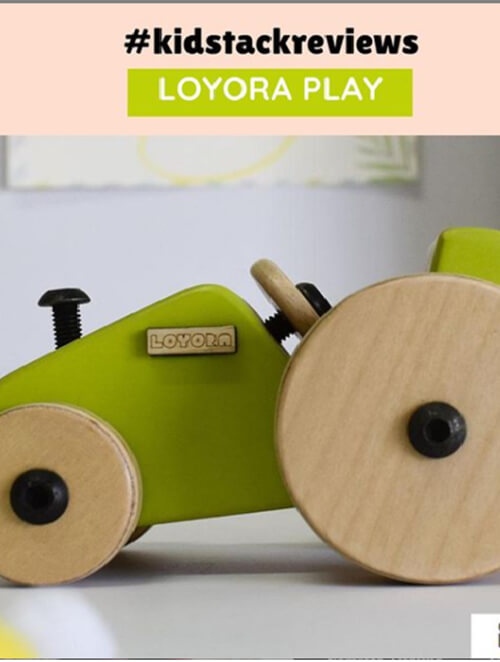The Importance Of Touch for Babies
 15460
15460

super easy
Ever noticed how a weeping baby calms down as soon as he is picked up by his mother? During the first half of the 20th century, a lot of therapists opined that displaying affection towards kids was merely a sentimental gesture that served no actual purpose. However, it was later proven that many children who had not had ample physical and emotional attention demonstrated a higher rate of behavioral, emotional, and social problems as they grew up. This brings us to the concept of ‘Contact Comfort,’-Importance Of Touch in Babies, which is believed to be the foundation of an infant’s first attachment. It is simply an infant’s need for physical closeness and touching, and the concept was developed by Harry Harlow, an American psychologist renowned for his maternal-separation, dependency needs, and social isolation experiments on rhesus monkeys, which gave a demonstration of how significant caregiving and companionship in social and cognitive development can be.
Humans use touch to interact with others, seek support, display affection, and develop relationships and human babies are no exception. Appropriate skin-to-skin contact with the babies, especially when they’re newborn, helps them calm down, cry less, and sleep better. It helps with the activation of a baby’s parasympathetic system, adds to his digestion, healing, and growth. Such babies not only breathe more regularly but also use energy more efficiently and grow faster. There are some studies that have shown that a baby’s brain development is facilitated—probably because they are calmer and sleep better. Since the newborns come out of a very restrictive environment, anything that simulates that comforts them. Being touched or hearing a heartbeat that is as familiar as what they heard in the womb has known to have a very major impact on their overall well-being. The benefits of touch are numerous. In fact, it has proven to help the mothers, too. It brings down their degree of distress, and they gradually begin to experience lowered levels of postnatal depression. They appear to be more sensitive to their little one’s cues, and the babies are more reactive to the mother throughout the initial three months.
Since the babies start recognizing and acknowledging their mother earlier, the connection between the mother and baby is off to a facilitated start. It works in a similar fashion with the dads, too. In research done before birth, twins have been observed on ultrasound, as early as fifteen weeks, sucking on each other’s face and fingers. Let’s consider another interesting study which emphasizes how a mother, right after her delivery, feels her chest, a degree or two warmer than the rest of her body; Thereby producing a natural warmer for her newly born. She has the potential to thermoregulate for the baby— which means that if the baby’s temperature drops, the mother’s temperature rises, and if the baby’s temperature goes up, the mother’s reduces. Isn’t it lovely how the relationship between a mother and baby gets going right from the birthing process itself, which also enhances breastfeeding outcomes?
Finally, cuddling, hugging, and rocking babies not only soothes them but also regulate the infant hormones that regulate stress. Massaging them using gentle touches has proven to have a powerful effect on the mental and physical development of the babies. Kneading each part of their body helps to extend their legs and flex their arms. The power of touch is so intense that without it, the baby cannot reach its optimal potential. It goes without saying that a baby is born with a need to be ‘loved,’ and never outgrows it. Akin to other sensory deprivation, the absence of touch in the course of early years slows growth in infants. And it’s presence makes the infant feel secure, protected, and builds trust between the child and the parent. Not only does it help form stronger attachments, but it also provides a stable foundation for future relationships.
Interesting traditions and beliefs practiced Worldwide concerning Neo-natal Care
There are various traditions and beliefs practiced concerning neo-natal care. We have curated a list of some interesting facts and traditional beliefs across the world that could serve as a fun/interesting read: According to the Greek tradition, parents should spit at a baby three times to ward off the evil eye, evil spirits, and also bad luck.In Ireland, the tradition is to sprinkle a crushed piece of the parents’ wedding cake on top of the newborn’s head as the baby is being baptised. This symbolizes the circle of life.Some new parents believe that if a mother consumes her placenta, then she will be prevented from postpartum depression. In a particular parenting tradition in Maharashtra, India, babies are thrown off the side of a 50-foot temple only to be caught in a sheet below. It is believed that this practice endows the baby with intelligence and courage.One current parenting trend is getting jewellery made out of body parts; examples are rings made out of preserved breast milk, umbilical cord-stump pendant necklaces, and lockets that hold a child’s baby tooth.Lotus birth is when the umbilical cord is left uncut and attached to the placenta for about 3–10 days after birth.
Follow us-
Instagram/ Facebook/ Youtube/ Pinterest
Also Read:
Don’t Worry, Be Safe- Important Safety Rules you should teach your Children
Don’t Worry, Be Safe- Important Safety Rules you should teach your Children





Leave a Reply